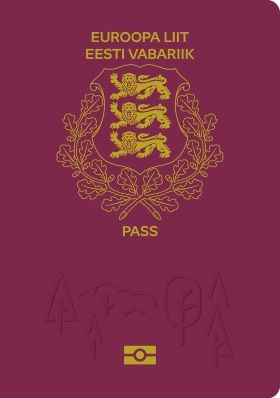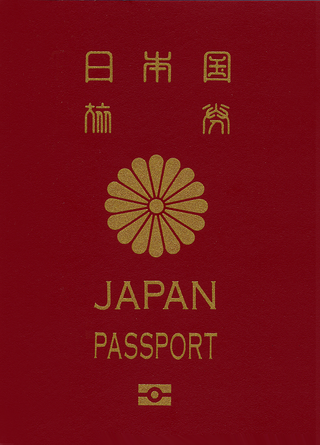
A visa is a conditional authorization granted by a polity to a foreigner that allows them to enter, remain within, or leave its territory. Visas typically include limits on the duration of the foreigner's stay, areas within the country they may enter, the dates they may enter, the number of permitted visits, or if the individual can work in the country in question. Visas are associated with the request for permission to enter a territory and thus are, in most countries, distinct from actual formal permission for an alien to enter and remain in the country. In each instance, a visa is subject to entry permission by an immigration official at the time of actual entry and can be revoked at any time. Visa evidence most commonly takes the form of a sticker endorsed in the applicant's passport or other travel document but may also exist electronically. Some countries no longer issue physical visa evidence, instead recording details only in immigration databases.

The Hong Kong Special Administrative Region passport is a passport issued only to permanent residents of Hong Kong who also hold Chinese citizenship. In accordance with the Basic Law of the Hong Kong Special Administrative Region, since the handover in 1997, the passport has been issued by the Immigration Department of the Government of Hong Kong under the authorisation of the Central People's Government of the People's Republic of China. As the official languages of Hong Kong are Chinese and English, the passport is printed bilingually in both Chinese and English.

Visitors to the United States must obtain a visa from one of the U.S. diplomatic missions unless they are citizens of one of the visa-exempt or Visa Waiver Program countries.

The visa policy of the Schengen Area is a component within the wider area of freedom, security and justice policy of the European Union. It applies to the Schengen Area and to other EU member states except Ireland. The visa policy allows nationals of certain countries to enter the Schengen Area via air, land or sea without a visa for up to 90 days within any 180-day period. Nationals of certain other countries are required to have a visa to enter and, in some cases, transit through the Schengen area.

The Mexican passport is the passport issued to Mexican citizens for the purpose of travelling abroad. The Mexican passport is also an official ID and proof of Mexican citizenship. According to the January 2024 Henley Passport Index, holders of a Mexican passport can visit 159 countries without a visa, ranking Mexico 23rd in terms of global travel freedom.

Visa requirements for Polish citizens are public health and administrative entry restrictions by the authorities of other states placed on citizens of Poland.

An Estonian passport is an international travel document issued to citizens of Estonia, and may also serve as proof of Estonian citizenship. Besides enabling the bearer to travel internationally and serving as indication of Estonian citizenship, the passport facilitates the process of securing assistance from Estonian consular officials abroad or other European Union member states in case an Estonian consular is absent, if needed. If an Estonian citizen wishes to receive an identity document, especially an Estonian passport, somewhere other than the foreign representation of the Republic of Estonia, then the bearer of the Estonian citizenship staying abroad could receive the travel documents in embassies of any EU country worldwide by paying 50 Euro. Many countries require passport validity of no less than 6 months and one or two blank pages.

Visitors to the Republic of China (Taiwan) must obtain a visa or authorization in advance, unless they come from one of the visa exempt countries or countries whose nationals are eligible for visa on arrival. All visitors must hold a passport valid for 6 months.

Visa requirements for Japanese citizens are administrative entry restrictions by the authorities of other states placed on citizens of Japan.

Visa requirements for Chinese citizens are administrative entry restrictions imposed on citizens of China who hold Mainland passport by the authorities of other states.

Visa requirements for Italian citizens are administrative entry restrictions by the authorities of other states placed on citizens of Italy.

Visa requirements for Australian passport holders are administrative entry restrictions by the authorities of other states placed on citizens of Australia entering with an Australian passport.

Visa requirements for Bulgarian citizens are administrative entry restrictions by the authorities of other states placed on citizens of Bulgaria. As of 8 January 2025, Bulgarian citizens had visa-free or visa on arrival access to 178 countries and territories, ranking the Bulgarian passport 15th overall in terms of travel freedom, according to the Henley & Partners Passport Index.

Visa requirements for Cypriot citizens are administrative entry restrictions by the authorities of other states placed on citizens of Cyprus.
Visa requirements for New Zealand citizens are administrative entry restrictions by the authorities of other states placed on citizens of New Zealand.

Visa requirements for Slovak citizens are administrative entry restrictions by the authorities of other states placed on citizens of Slovakia. As of November 2024, Slovak citizens had visa-free or visa on arrival access to 184 countries and territories, ranking the Slovak passport 9th in terms of travel freedom according to the Henley Passport Index.

Overseas Citizenship of India (OCI) is a form of permanent residency available to people of Indian origin which allows them to live and work in India indefinitely. It allows the cardholders a lifetime entry to the country along with benefits such as being able to own real estate and make other investments in the country.

Visitors to India must obtain a visa unless they come from one of the visa-exempt countries. Nationals of certain countries may obtain a visa on arrival or an e-Visa online, while others must obtain a visa from an Indian diplomatic mission.

The visa policy of Lebanon deals with the requirements which a foreign national wishing to enter the Republic of Lebanon must meet to be permitted to travel to, enter and remain in the country.
Visa requirements for Antiguan and Barbudan citizens are administrative entry restrictions imposed by the authorities of foreign states on citizens of Antigua and Barbuda. As of 15 December 2024, Antiguan and Barbudan citizens had visa-free or visa on arrival access to 153 countries and territories, ranking the Antiguan and Barbudan passport 27th in the world in terms of travel freedom according to the Henley Passport Index.

















